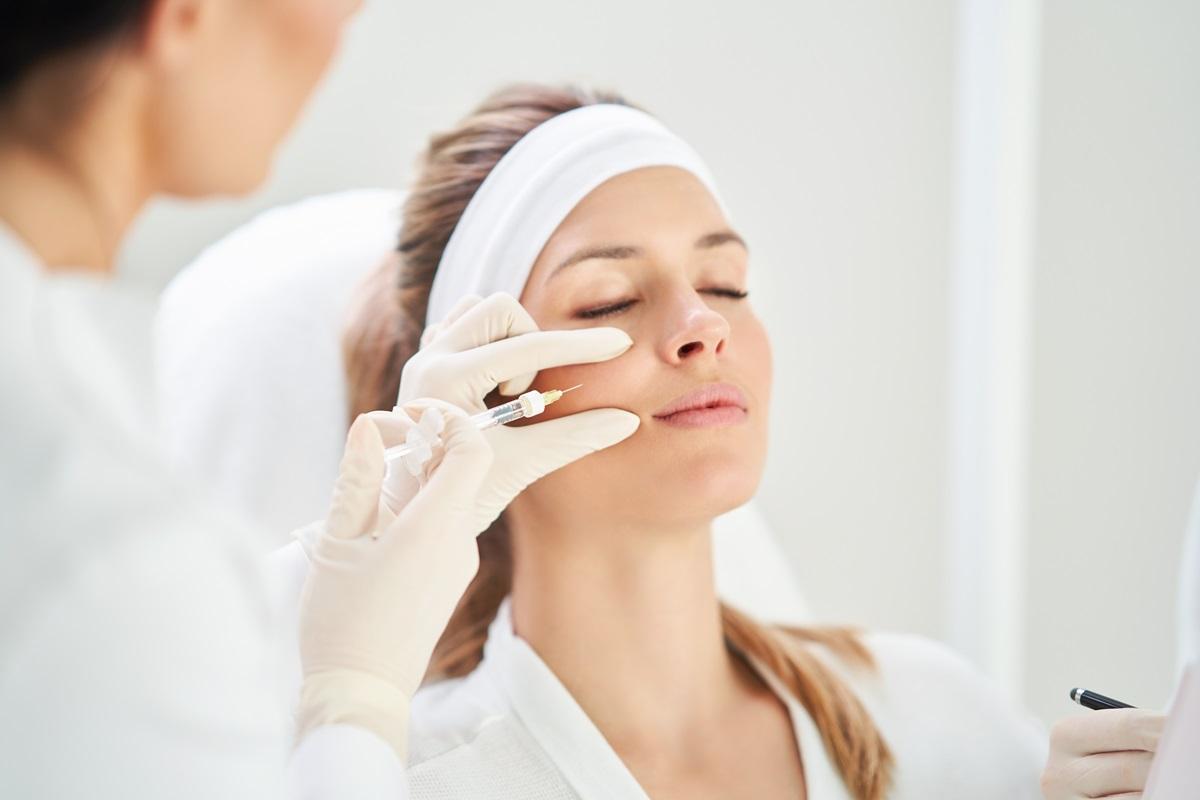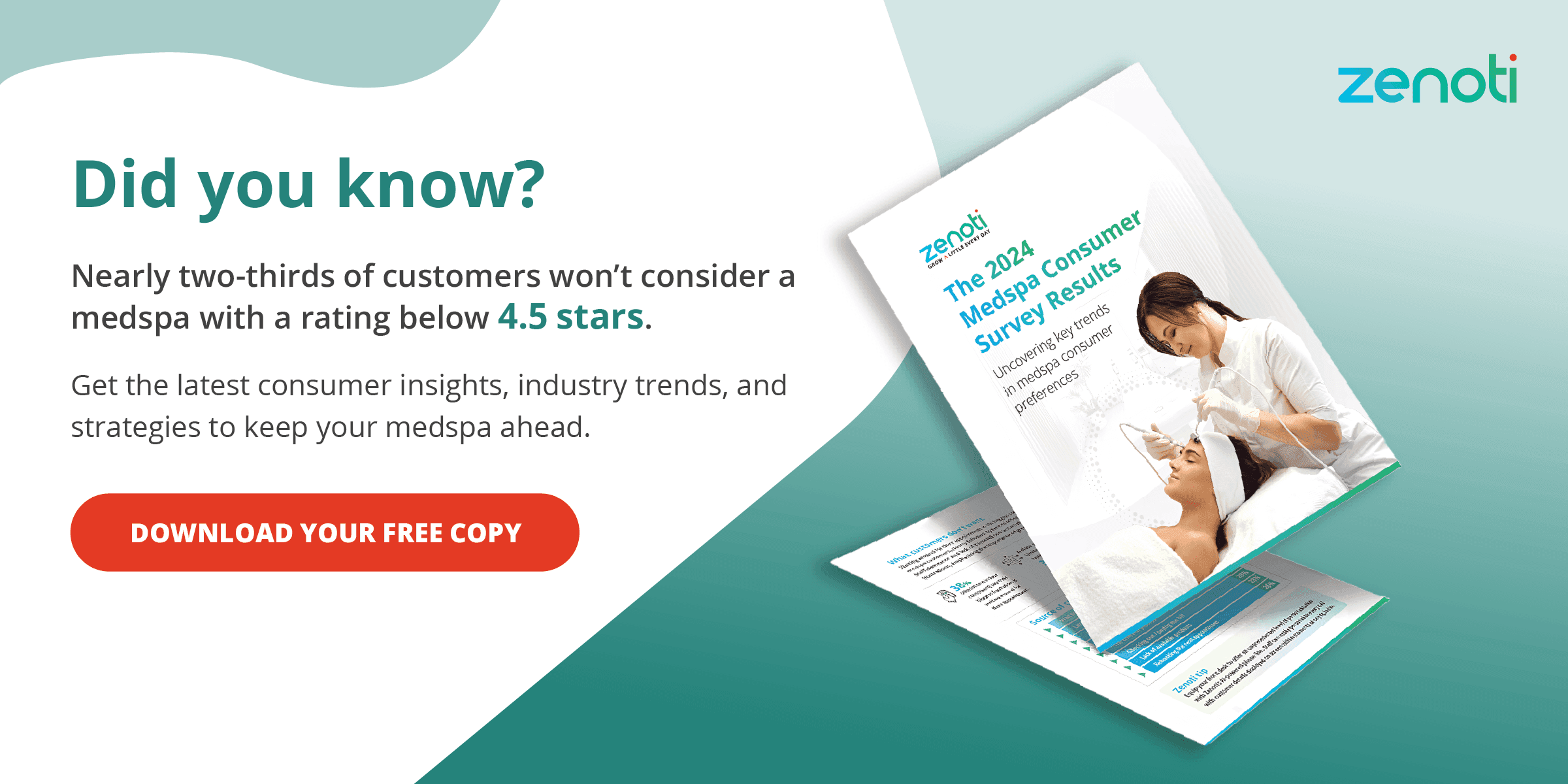How to choose a HIPAA-compliant medical spa software
Seeking HIPAA-compliant software for your medical spa? Get a compliance checklist and see which features help you improve the experience for clients and staff.

Ensuring HIPAA compliance for your medical spa is not just about adhering to regulations – it involves protecting your clients' sensitive information and maintaining trust. It figures, then, that selecting the right software is crucial. With so many options on the market, however, it can be challenging to find a platform that also excels at business management.
In this guide, we’ll walk you through the importance of HIPAA-compliant CRM (customer relationship management) software, provide a checklist to help guide your selection, and highlight key features to look for in medical spa software.
What is HIPAA-compliant CRM software for medical spas?
As medical facilities, medspas are more strictly regulated than traditional spas, and HIPAA-compliant CRM software is designed to help them meet the specific privacy and security requirements set forth by the Health Insurance Portability and Accountability Act (HIPAA). Such software provides the secure storage, transmission, and management of protected health information (PHI) of medspa clients.
For medical spas, HIPAA-compliant CRM software offers peace of mind that all client data is protected, while also streamlining operations and improving client interactions.
A HIPAA compliance checklist for medical spa software
Before you invest in software for your medical spa, make sure it meets HIPAA requirements. Ensuring compliance not only protects patient information but also safeguards your practice from potential legal issues. Here’s a checklist of features to look for:
1. Data encryption
Your software should encrypt both data at rest and data in transit. Encryption will prevent unauthorized access to Protected Health Information (PHI), providing an additional layer of security. If unauthorized individuals access the data, they cannot read it without the decryption key.
2. Access controls
HIPAA requires medical facilities to prevent unauthorized access to sensitive information. Your medspa software should allow you to set access levels by user, ensuring that only authorized personnel can access protected health information. This could include role-based access control (RBAC), where users receive access based on their responsibilities.
3. Audit trails
An audit trail feature is essential to track all access and modifications to PHI, supporting both HIPAA compliance and identity theft protection. By recording user activities, such as login attempts, data access, and changes to records, this feature can help identify any unauthorized attempts to access sensitive information, providing an additional safeguard against identity theft.
4. Secure user authentication
Your HIPAA-compliant medical spa software should support secure user authentication methods, such as multi-factor authentication (MFA), to verify the identities of users accessing the system. MFA might involve something the user knows (password), something the user has (security token), and something the user is (biometric verification).
5. Automatic logoff
To prevent unauthorized access, the software should automatically log users off after a period of inactivity. This is especially important in medical spas where multiple employees might share computer terminals. Automatic logoff is a safety measure to limit exposure of PHI when users step away.
6. Data backup and disaster recovery
Ensure the platform backs up data continually and comes with a robust disaster recovery plan. This prevents the loss of PHI in case of system failures, cyberattacks, and other unforeseen events. Regular backups and a disaster recovery plan are crucial to maintain the integrity and availability of patient data.
7. Business associate agreement (BAA)
Make sure the software provider is willing to sign a business associate agreement. A BAA is a contract that specifies each party's responsibilities in protecting PHI. This agreement outlines the permissible and required uses of PHI and helps validate the software provider’s compliance with HIPAA regulations.
8. Training and support
Choose software that offers training for your staff on HIPAA compliance. This training should cover how to properly use the software and protect PHI. Then, check for reliable customer support that works with your business hours to promptly address any issues or questions that might arise. Continuing education and support are a must to maintain compliance in the ever-evolving landscape of healthcare regulations.
By using the HIPAA compliance checklist for medical spa software detailed above, you can ensure that your medspa's choice of platform enhances your operational efficiency while helping you adhere to stringent HIPAA requirements – your patients and your practice deserve nothing less. As an option for medspa business management, Zenoti software is HIPAA-compliant, prioritizing data privacy and security.

Key features to look for in HIPAA-compliant medical spa software
When selecting HIPAA-compliant software for your medical spa, consider the following features:
Client management: Look for software that allows you to securely track customer interactions and preferences. Such information helps you provide personalized service and target your marketing as well.
Appointment scheduling: The platform should offer online appointment scheduling with reminders, while ensuring client data remains protected.

Billing and payments: Built-in payment processing that is secure and complies with HIPAA standards helps streamline operations.
Reporting and analytics: Advanced reporting features that help you monitor business performance, speed up goal setting, and improve decision-making.
Integration capabilities: For an efficient workflow, choose software that will dovetail with other systems you use. All-in-one platforms offer the benefit of fewer systems for staff to juggle.
Telehealth support: To be able to offer remote consultations securely, look for a platform with telehealth capabilities and safeguards to protect patient privacy.
Digital forms: In addition to reducing paperwork, going digital is convenient for clients, with medspa service providers and clinicians benefiting from the faster processing time, too.
A user-friendly interface: A feature-rich platform can be frustrating if it isn’t easy to use. Thoroughly explore this aspect of medical spa software to minimize the learning curve for staff and boost productivity.

Quick guide: HIPAA-compliant medical spa software
Selecting the right HIPAA-compliant medical spa software helps with the smooth running of your business while protecting your clients' sensitive information. To choose a system that benefits both your business and your clients, use the HIPAA compliance checklist above for medical spa software to evaluate platforms you are considering for essential features.
Software designed for multi-center management should offer comprehensive solutions with CRM functionalities. Look out for platforms that include features like online appointment scheduling, payment processing, photo management, and advanced marketing for medical spas.

Book your bi-weekly check-in for industry tips, trends, and insights to grow your brand
People Also Read
Your standing appointment for business growth — delivered straight to your inbox
Get the latest industry tips, trends, and insights to grow your brand.






